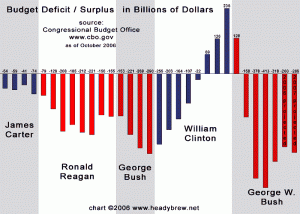 We have not seen much love in Washington DC recently, and the presentation of President Obama’s budget for 2012 is not likely to be taken as a gesture of friendship. As soon as the dust settled after last November’s midterm elections, both political parties and numerous commissions began to draw up agendas to discuss the possibilities of making serious cuts to the federal government’s budget. President Obama’s so-called ‘Debt Commission’ developed plans to trim the trillion-dollar-plus deficit. One of the ideas floated by the commission was to trim the 100% tax write-off available to high-dollar donors – a plan that could seriously hamper nonprofits’ courting of big donors.
We have not seen much love in Washington DC recently, and the presentation of President Obama’s budget for 2012 is not likely to be taken as a gesture of friendship. As soon as the dust settled after last November’s midterm elections, both political parties and numerous commissions began to draw up agendas to discuss the possibilities of making serious cuts to the federal government’s budget. President Obama’s so-called ‘Debt Commission’ developed plans to trim the trillion-dollar-plus deficit. One of the ideas floated by the commission was to trim the 100% tax write-off available to high-dollar donors – a plan that could seriously hamper nonprofits’ courting of big donors.
With the president presenting his 2012 federal budget proposal this week, the struggle is to find a way to reduce deficits without stalling an economy that is moving forward, if sputteringly so. Jacob Lew, director of the White House Office of Management and Budget, has recently published in The New York Times an explanation of the difficult choices that have to be made. Unfortunately, environmental and community-based efforts are high on the list of cuts.
The challenges faced by the economy are beyond doubt. How to reduce the budget in the midst of those challenges is entirely within doubt. According to Lew,
[Trimming the deficit] starts with doing what families and businesses have been doing during this downturn: tightening our belts. In the budget, the president will call for a five-year freeze on discretionary spending other than for national security. This will reduce the deficit by more than $400 billion over the next decade and bring this category of spending to the lowest share of our economy since Dwight Eisenhower was president.
Make no mistake: this will not be easy.
Indeed, his op-ed piece focuses on cuts to two programs near-and-dear to Obama himself. First are ‘community service block grants.’ “These are grassroots groups working in poor communities, dedicated to empowering those living there and helping them with some of life’s basic necessities.” Next is the Great Lakes Restoration Initiative, losing $125 million.
But as Suzanne Perry of The Chronicle of Philanthropy reported last week, the cuts to nonprofits could go deeper still. Indeed, his own party members have balked at some of his proposals floated over the last couple of years that are unlikely to make it to the final budget:
Promise Neighborhoods, a project that provides grants to help nonprofits set up poverty-fighting projects modeled on the Harlem Children’s Zone, was one of the efforts Mr. Obama wanted to be a signature of his administration.
Last year Mr. Obama proposed spending $210-million in 2011, up from $10-million in 2010. But even Democratic-controlled Congressional committees balked at that. A House subcommittee proposed spending only $60-million and a Senate committee only $20-million.
Alas, as those who have closely followed the budget debate closely over the last few months know, both political parties are fighting over cuts that – at most – affect about 10% of the smallest sector of the federal budget, domestic discretionary spending. Moreover, even some conservative commentators are lamenting the fact that the cuts are both minuscule in the face of a trillion-dollar debt and will cause real damage to programs that actually work. From David Brooks of The New York Times:
Over the next few weeks, Republicans will try to cut discretionary spending to 2008 levels and tell their constituents they are boldly reducing the size of government. That is a mirage. Anybody who doesn’t take on entitlement spending is an enabler of big government. The supposedly rabid Republican freshmen are actually big government conservatives. They will cut programs that do measurable good while doing little to solve our long-range fiscal crisis.
The budget under consideration is meant to be in place in October 2011 for the fiscal year 2011-2012. The debates over it do not relate to the other fight we will be witnessing over the next couple of weeks: passing temporary resolutions to keep the government working for the rest of fiscal year 2010-2011, for which a budget was never passed.
Happy Valentine’s Day!

